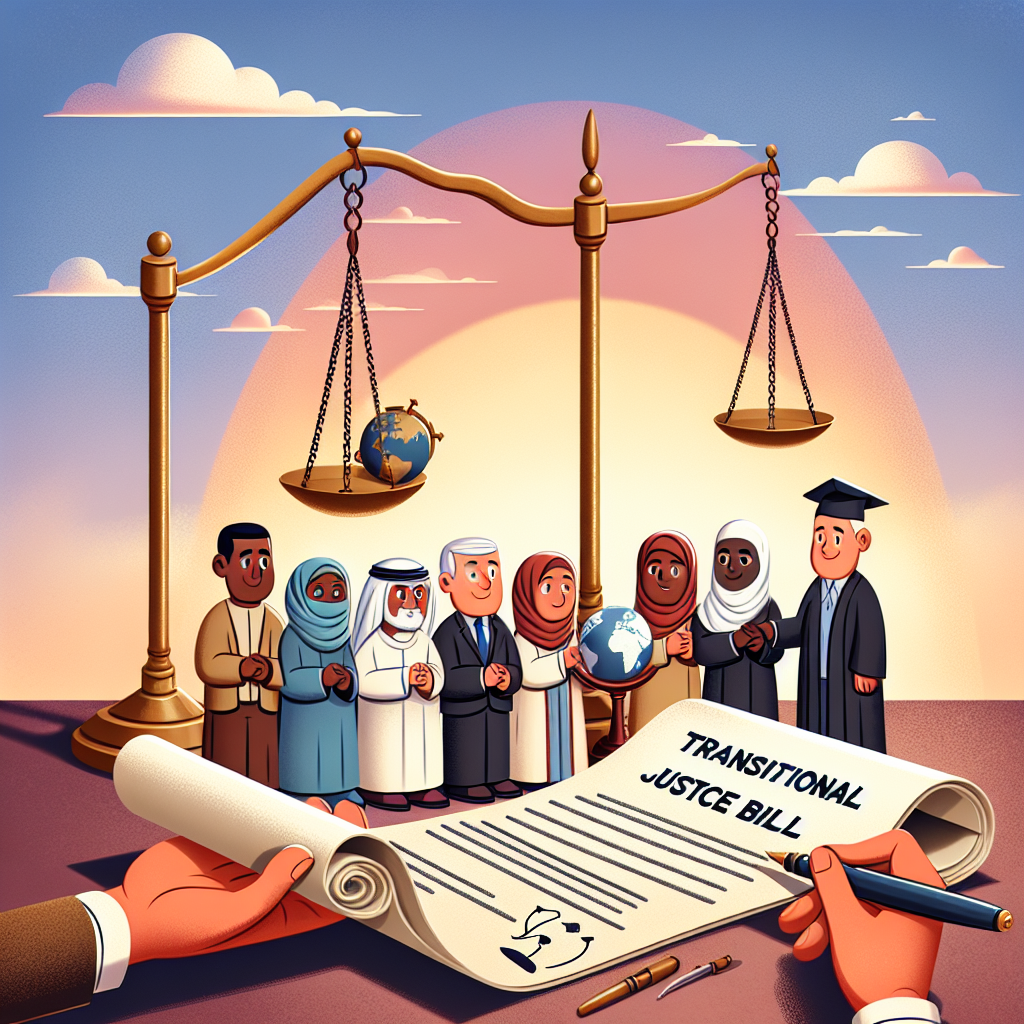Barney Afako Visits African Union to Support South Sudan’s Transitional Justice Progress
The African Union plays a pivotal role in supporting South Sudan’s peace process by providing both political accompaniment and mobilizing financial and technical support.

Barney Afako, a member of the United Nations Commission on Human Rights in South Sudan, began a pivotal five-day visit to the African Union (AU) in Addis Ababa, Ethiopia, today. This visit is a crucial part of the ongoing support for South Sudan’s transitional justice process, following significant legal reforms aimed at addressing past human rights violations.
Afako’s visit comes on the heels of South Sudan’s President Salva Kiir assenting to two key laws in the past week, marking a major step toward establishing the Commission for Truth, Reconciliation and Healing and the Reparation Authority. These laws are intended to address the legacies of human rights violations and meet the needs of victims and survivors.
South Sudan's Political Transition and the Role of the African UnionIn September 2024, South Sudan’s government extended the 2018 Revitalized Agreement on the Resolution of the Conflict in the Republic of South Sudan by another two years, raising concerns over the country's commitment to completing its political transition. The African Union (AU) and the Intergovernmental Authority on Development (IGAD) remain central guarantors of the peace agreement, providing vital political and diplomatic support.
Afako and the UN Commission on Human Rights in South Sudan will meet with key AU bodies, including the African Union Commission, the Peace and Security Council, and the African Commission on Human and Peoples’ Rights, to discuss the implementation of transitional justice and human rights in the country. The visit will also include engagements with IGAD, regional and international diplomats, and civil society organizations, all of whom are involved in supporting South Sudan’s recovery.
Focus on Transitional Justice and Hybrid Court
While the recent enactment of laws for the Truth Commission and the Reparation Authority is a positive development, there remain critical challenges in South Sudan’s transition. Urgent steps are still needed to establish the Hybrid Court for South Sudan, which would play a crucial role in ensuring accountability for human rights violations. Strengthening domestic criminal justice systems is also seen as a priority for the country’s long-term peace and stability.
Afako’s team will share findings from their investigations into South Sudan’s progress in meeting its human rights obligations, emphasizing the need for citizen-driven and survivor-centred approaches in implementing transitional justice.
African Union’s Critical Role in South Sudan’s Future
The African Union plays a pivotal role in supporting South Sudan’s peace process by providing both political accompaniment and mobilizing financial and technical support. The AU’s Peace and Security Council and other AU bodies are integral in addressing the delays and challenges that have hindered the effective implementation of the peace agreement and justice mechanisms.
During the visit, Commissioner Afako and his delegation will advocate for the continued involvement of the AU and other international partners in helping South Sudan overcome these barriers and ensure that the transitional justice processes are carried out effectively.
Looking Ahead
As South Sudan continues its journey toward peace and reconciliation, the African Union and international partners must work closely with the country to ensure that justice for past violations is achieved and that victims and survivors receive the support they need to rebuild their lives. The ongoing role of the UN Commission on Human Rights will remain essential in monitoring progress and pushing for further reforms where necessary.
- READ MORE ON:
- Barney Afako
- African Union










